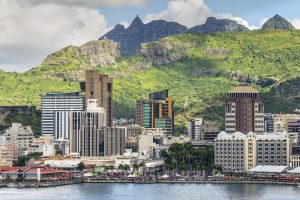Share this article
Be the first to know about our new projects.
2Futures has many new luxury projects in the pipeline. Get notified before the public when there’s a new launch. Benefit from early bird specials.
The Mauritian government has yet another ace up its sleeves to further stoke interest on foreign investment. This added muscle to the country’s post-Covid-19 economic recovery efforts comes in the Industrial Property Act that the Parliament of Mauritius approved in July 2019.
The act updates and strengthens the protection of intellectual property rights in Mauritius. It aims to harmonise the country’s growth with the increasingly globalised industrial environment.
This landmark statute consolidates all of the intellectual property regulations in Mauritius. Its IP protection framework covers the following: patents and utility models; integrated circuit layout-designs; IP coverage of new plant varieties; industrial designs as spelt in the Hague Agreement; and marks, trade names and geographical indications deemed under the Madrid Protocol.

The administration and implementation of the Mauritian IP rights act have been assigned to the Mauritius Industrial Property Office at Sterling House, Lislet Geoffroy Street, Port Louis. This office is notably under the Regional Integration and International Trade of the Ministry of Foreign Affairs, indicating its crucial role in growing interest on real estate.
Its robust protection of IP rights shall enable Mauritius to continue tapping into new investment sectors which could contribute to sustainable growth for the island nation. In recent years, the major sources of direct foreign investment in Mauritius were France, South Africa, China, and the UK. SBM Bank, one of the biggest Mauritian banks, estimated that investors from these four countries ploughed into Mauritius a total of $206 million investments in 2018.
The IP rights statute dovetails with other government perks that helped spawn a new breed of investors in Mauritius. The country’s continuing quest for investment in renewable energy, for example, recently gained fruition in an innovative cascading hydropower plant venture, the first project of its kind in the world.
True Tesla Technologies is undertaking this pilot project in the River Tamarin at Yemen. The project will employ the revolutionary turbines of Nikolai Tesla, a Serbia-based engineer- innovator and descendant of noted scientist Nikola Tesla known for designing the alternating-current (AC) electric system used predominantly across the world today.
Once installed later this year, the river-based True Tesla Technologies’ power plant shall deliver the 100 kW renewable energy it generates to the national grid. A connection agreement with the country’s Central Electricity Board (CEB) has already been signed. It is expected that the Tesla technology would be deployed across the Mauritian river network by end-2021 for additional energy generation.
Besides the CEB, several other Mauritian agencies helped push the project. These include the country’s Ministry of Foreign Affairs, the Mauritius Renewable Energy Agency, the Mauritius Research and Innovation Council. Their efforts all combine to break ground for a new breed centred on an innovative IP venture.